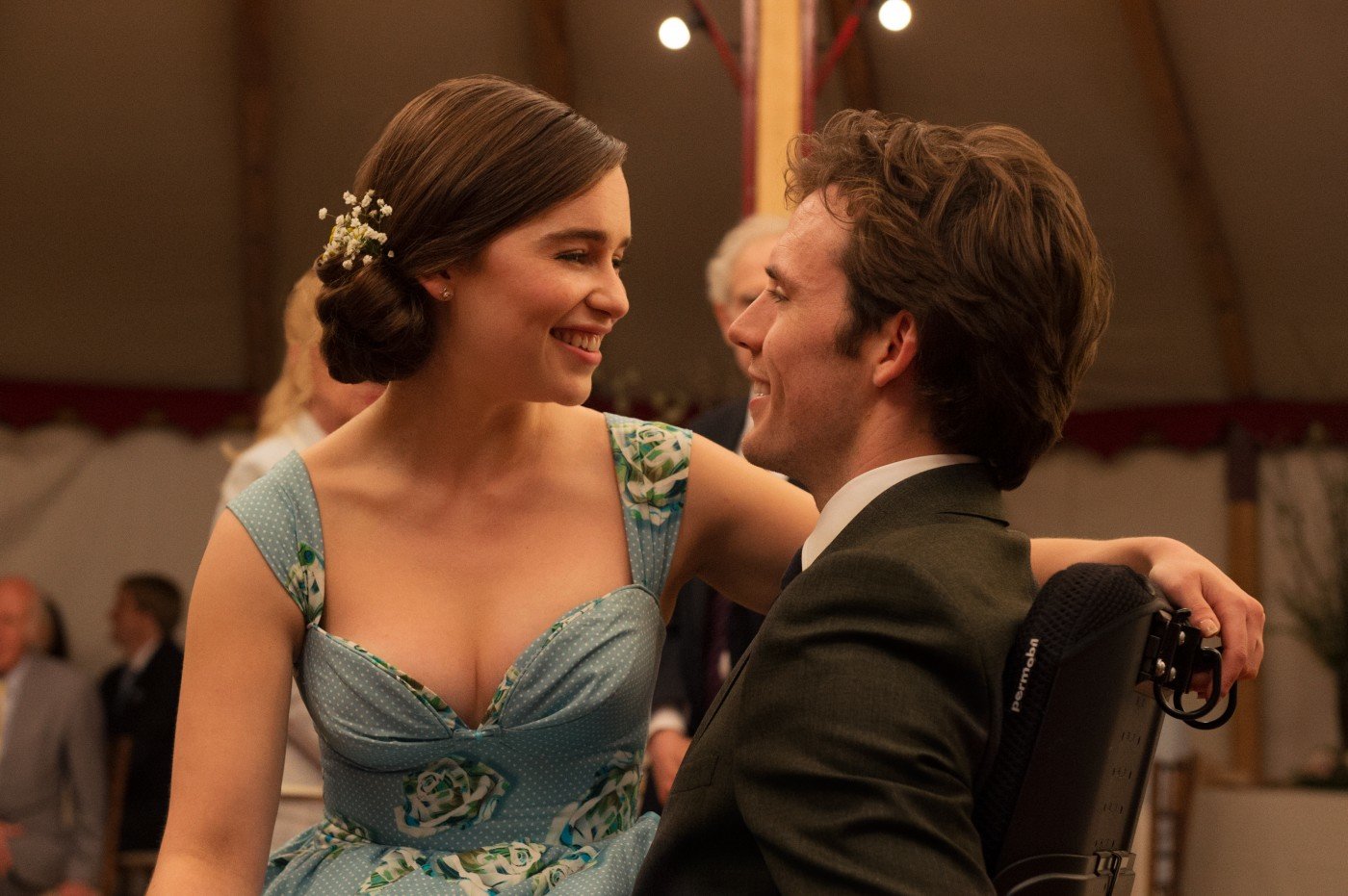Me Before You slammed for 'dehumanising stereotypes'
Romance about a carer and her rich patient has troubling attitudes to disability and women, say critics

A free daily email with the biggest news stories of the day – and the best features from TheWeek.com
You are now subscribed
Your newsletter sign-up was successful
Warning: article contains spoilers for the movie
Me Before You, a new romantic drama about a love affair between a carer and her wealthy patient, has provoked anger from disability rights campaigners who say it portrays disabled people as a burden.
Thea Sharrock directs the movie, which Jojo Moyes scripted from her own novel of the same name. It stars Emilia Clarke (of Game of Thrones fame) and Sam Claflin (from The Hunger Games films).
The Week
Escape your echo chamber. Get the facts behind the news, plus analysis from multiple perspectives.

Sign up for The Week's Free Newsletters
From our morning news briefing to a weekly Good News Newsletter, get the best of The Week delivered directly to your inbox.
From our morning news briefing to a weekly Good News Newsletter, get the best of The Week delivered directly to your inbox.
The film, which opens in UK cinemas today, tells the story of working-class Louisa (Clarke), a waitress who takes on a job as a paid companion to Will Traynor (Claflin), a former City high-flyer paralysed from a motorbike accident. Perpetually gloomy Will has a death wish and is considering ending his life at an assisted dying facility in Zurich.
"This could have been meaty and fascinating subject material," says Kevin Maher in The Times. Think Whose Life is it Anyway? meets Pretty Woman. Instead it's all "Mills & Boon swooning and weirdly retrograde fantasising" about a Prince Charming who's disabled. This is where it "wanders blindly into hideously uncomfortable waters", says Maher.
The London premiere was picketed by disability campaigners who objected to the film's apparent stance on living, or not, with quadriplegia. The marketing hashtag used to promote the story, #LiveBoldly, was also taken up by critics to expose the movie's "problematic" message.
"Do you really want us to #LiveBoldly or do you just want us to #diequickly?" asked one commenter during a Twitter Q&A session with Claflin. Other Twitter users took up the hashtag #MeBeforeEuthanasia and one person tweeted: "I'm not your inspiration porn and I'm not a thing to be pitied or killed off to make the audience cry". Another tweeter, who said he had the same disability as Will in the film, wrote: "Stop killing me on film!"
A free daily email with the biggest news stories of the day – and the best features from TheWeek.com
In Salon, Emily Ladau, who describes herself as a physically disabled woman who uses a wheelchair, complains that "the entire premise rests on the belief that life with a disability is not worth living".
She adds that Me Before You "overflows with dehumanising stereotypes about disability, from implications that disabled people are things no more active than houseplants, to assumptions that disability is a fate worse than death".
Yes, it's another "misguided and reductive examination of disability", says Kristen Lopez on Flavorwire. But Warner Brothers, which is selling Me Before You as a weepy melodrama for female audiences, seems to have "as low an opinion of women as it does of the disabled".
She points out that Will insists women "wouldn't dare find him attractive, as if the wheelchair crafts a permanent bubble blinding women to his good looks, well-bred attitude, and conversational skills".
Me Before You has found some defenders, reports Entertainment Online. It says the Christopher Reeve Foundation, which promotes cures for spinal cord injury, reached out to offer its support to author and screenwriter Moyes, and lists her book on its Pinterest Board of "Books We Love".